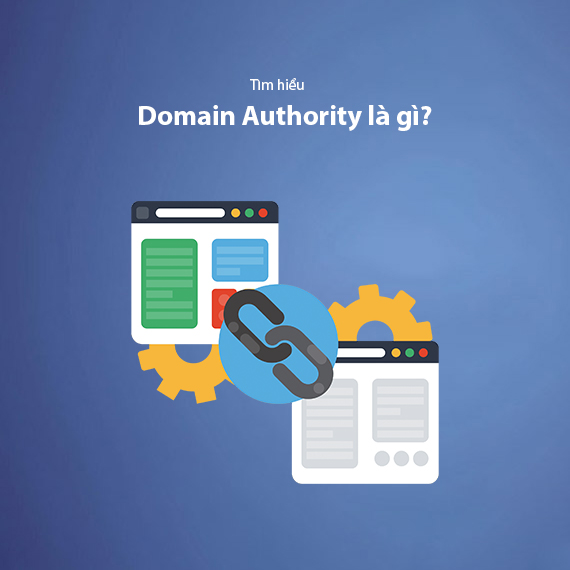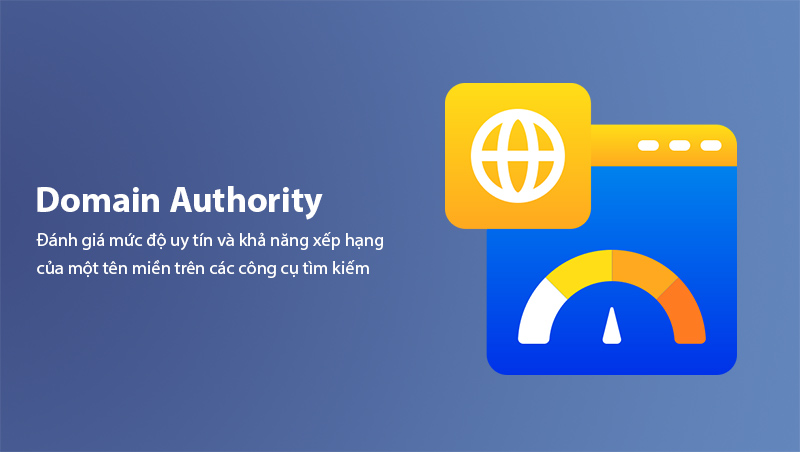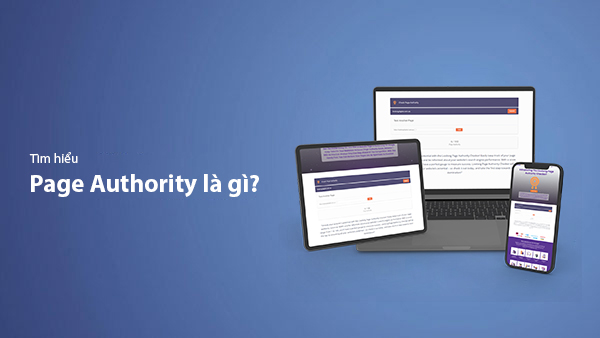What is Domain Authority? Effective DA Score Improvement Guide for 2025
- Published on

- What is Domain Authority?
- The Role of Domain Authority in SEO
- How to Check Domain Authority of a Website
- How to Check DA Using Moz Link Explorer:
- How Domain Authority Score is Calculated
- Factors Affecting DA Score:
- How is DA Score Calculated?
- What DA Score is Considered Good?
- DA Score Classification:
- How Much DA is Sufficient for SEO Strategy?
- 13-Step Process to Increase Domain Authority for Your Website
- Choose a Quality Domain Name
- Publish and Optimize Content Consistently and Effectively
- Optimize On-Page Elements for Your Website
- Create High-Quality Backlinks
- Filter and Remove Bad, Low-Quality Links
- Optimize for Mobile-Friendliness
- Increase Page Load Speed
- Create Engaging Content to Improve Reputation
- Promote Content Through Social Media
- Be Patient for Your Domain to Develop
- Build Relationships with Other Websites in Your Industry
- Use Schema Markup to Improve SEO
- Evaluate Results and Adjust SEO Strategy
- Domain Authority vs. Page Authority Comparison
- Mistakes that Affect DA
- Using Bad Backlinks
- Keyword Stuffing
- Neglecting On-Page SEO Optimization
- Lack of a Clear Content Strategy
- Focusing Too Much on Quantity Over Quality Backlinks
- Lack of Community Engagement or Social Media Activity
- Frequently Asked Questions About Domain Authority
- How to Increase Domain Authority Quickly?
- How to Track Changes in Domain Authority?
- Is Domain Authority the Only Factor that Affects Google Rankings?
- Does Domain Authority Affect Page Authority?
- Can Domain Authority Decrease?
- Is DA the Same as Google’s PageRank?
- Does Domain Authority Affect Long-Term Website Development?
- Are There Tools to Improve Domain Authority?
- Conclusion
What is Domain Authority?
Domain Authority (DA) is a metric developed by Moz, used to assess the credibility and ranking ability of a domain on search engines, especially Google. DA is calculated based on a range of factors, including the number and quality of backlinks, internal linking capability, and the technical optimization of the website. This score is displayed on a scale from 1 to 100, with higher scores indicating a better ability to compete for target keywords.

DA is not an official ranking factor recognized by Google, but it is widely used by SEO professionals as a tool for evaluating and tracking SEO effectiveness. It helps determine a website’s likelihood of achieving high positions in search results.
Understanding Domain Authority not only provides a broad view of your website’s SEO performance but also plays a key role in optimizing your long-term strategy.
The Role of Domain Authority in SEO
Domain Authority (DA) plays a significant role in evaluating the overall strength of a website in an SEO strategy. While DA is not an official ranking factor recognized by Google, it is a reliable metric for predicting how a website will rank for competitive keywords.
A website with a high DA generally has the ability to:
- Rank higher on search engine results pages (SERP): A high DA improves keyword rankings, increasing the chances of attracting organic traffic.
- Enhance trustworthiness: Websites with high DA are often considered more trustworthy, which leads to more quality backlinks from authoritative sites.
- Support long-term SEO strategies: DA helps you assess the effectiveness of link building, content optimization, and competitiveness against other websites.
Additionally, DA is a valuable tool for competitor analysis. By comparing the DA of your website with that of competitors in your industry, you can evaluate strengths, weaknesses, and identify opportunities for improving your SEO strategy.
Domain Authority is not just a metric, but a crucial benchmark that helps you build and adjust your SEO strategy in a scientific and effective way.
How to Check Domain Authority of a Website
To check the Domain Authority (DA) of a website, you can use various free or paid online tools developed by reputable platforms. Among them, Moz Link Explorer is the official tool that provides DA scores. There are also other popular tools like:
- Ahrefs: Provides a similar metric to DA called Domain Rating (DR), which helps assess the credibility of a domain.
- SEMrush: Offers an overview of domain strength through detailed reports on backlinks and keywords.
- Ubersuggest: A free tool by Neil Patel that provides basic DA information along with other SEO analytics.
How to Check DA Using Moz Link Explorer:
- Visit Moz Link Explorer.
- Enter the URL or domain name you want to check.
- Click Analyze to get the results.
- The results will show the DA score, the number of backlinks, the number of linking root domains, and other helpful information.
Checking DA regularly is an effective way to monitor your website’s development and assess the impact of your SEO strategies. Combine DA checks with competitor analysis to make appropriate adjustments and optimize your SEO efforts.
How Domain Authority Score is Calculated
Domain Authority (DA) is not calculated based on a single formula but is derived from machine learning algorithms developed by Moz. It combines various factors to predict a website's ranking ability on Google.
Factors Affecting DA Score:
- Quantity and quality of backlinks: Backlinks from authoritative and relevant websites positively impact DA.
- Root Domains: Websites with backlinks from diverse root domains are rated higher than those receiving backlinks from a single source.
- Link Structure: A good internal linking structure that helps guide users and search bots efficiently also contributes to DA.
- Technical SEO factors: Page load speed, mobile compatibility, and using HTTPS indirectly affect DA by enhancing user experience.
How is DA Score Calculated?
Moz uses a machine learning model to compare a website's backlink data with that of thousands of other websites on the internet. This process considers not only the quantity of links but also the following factors:
- Spam Score: Detecting any signs of unnatural link patterns.
- Trustworthiness: The credibility of the backlink source based on the authority of the linking page.
- Link Velocity: The rate at which links increase over a period.
Note: Domain Authority is a relative metric. Therefore, comparing your DA with other websites in your industry is more beneficial than focusing solely on increasing DA independently.
What DA Score is Considered Good?
Domain Authority (DA) is rated on a scale from 1 to 100, with higher scores reflecting a better chance of ranking well on search engines. However, what constitutes a good DA score depends on your niche, the scale of your website, and the competitiveness of your industry.
DA Score Classification:
- 1 - 30: Low DA, usually seen in new websites or those that have not focused much on SEO optimization.
- 31 - 50: Average DA, indicating some efforts have been made in link building and content improvement.
- 51 - 70: Good DA, typical for large websites with a solid SEO strategy and high-quality content.
- 71 - 100: Very high DA, seen in globally trusted websites like Google, Amazon, or Wikipedia.
How Much DA is Sufficient for SEO Strategy?
- For small or new websites, the goal should be to achieve a DA between 30 - 50 to establish a competitive foundation.
- For websites in highly competitive industries, a DA above 50 is a significant advantage.
- The key is to compare DA with competitors in your industry. If your DA is comparable to or higher than your competitors, you will have a significant edge for ranking on common keywords.
To improve DA sustainably, check out the Quality Link Building Process – a core element in boosting your DA score quickly.
DA score is not the final goal, but rather a supporting metric that helps you evaluate and adjust your SEO strategy. Instead of focusing solely on increasing DA, focus on creating valuable content, building quality links, and improving user experience for long-term results.
13-Step Process to Increase Domain Authority for Your Website
To improve Domain Authority (DA), you need to implement a comprehensive and robust SEO strategy. Below is a detailed 13-step process to effectively increase DA for your website.
Choose a Quality Domain Name
The domain name is the first factor that affects your website's Domain Authority. A quality domain name not only helps establish a reputable brand but also plays a crucial role in SEO. To select a good domain name, keep the following points in mind:
- Short and memorable: Avoid long or complicated names that may reduce brand recognition.
- Relevant to your industry: If possible, your domain name should contain keywords related to your website's industry. This will help with SEO right from the start.
- No negative history: Avoid domains with a history of spam or penalties. You can check the domain’s history using tools like Wayback Machine or Ahrefs to ensure it has no prior issues.
Publish and Optimize Content Consistently and Effectively
One of the most important factors in increasing DA is creating high-quality and consistent content. The content must be valuable and meet the needs of users. Here are key optimization tips:
- Creative and problem-solving content: Research thoroughly and provide useful information for readers. Don't just write for the sake of writing; provide content that your audience truly needs.
- Regularly update content: Your website should have fresh content to keep users coming back and encourage search engines to rate your website higher.
- Keyword optimization: Every post should focus on your target keywords, but avoid keyword stuffing. Keywords should naturally appear in titles, the introduction, body, and conclusion.
- Appropriate content length: Content needs to be long enough to provide detailed information, but avoid rambling. Ensure it is easy to read and understand.
Optimize On-Page Elements for Your Website
On-Page Optimization involves improving elements within your website to help boost rankings in search engines. Important On-Page SEO factors include:
- Page title (Title tag): The title should include the target keyword and attract users to click on your link.
- Page description (Meta description): This short description should be catchy and contain your main keyword.
- URL structure: Your URLs should be short, clear, and contain the main keyword. This helps users and search engines better understand the page content.
- Image optimization: Images not only make the content engaging but also affect SEO. Ensure that images are compressed for optimal size and include alt text for descriptions.
- Page load speed: Google values fast loading times. A slow website will affect both user experience and SEO rankings.
Create High-Quality Backlinks
Building high-quality backlinks is the most crucial factor in improving DA. Backlinks from authoritative websites act as votes of confidence for your content, boosting your DA and search engine rankings. To build quality backlinks:
- Guest post on reputable blogs: Write guest posts for other authoritative websites in your industry. Ensure you include a link back to your website in the post.
- Conduct link-building outreach: Contact websites in your industry for link-building opportunities or collaborations.
- Utilize internal linking: Make sure your website has a strong internal linking structure, as this helps improve link equity distribution throughout your pages.
Note: Quality over quantity. A single backlink from a trusted authority is much more valuable than multiple backlinks from low-authority websites.
Filter and Remove Bad, Low-Quality Links
Bad links can negatively affect your Domain Authority. To protect DA, follow these steps:
- Check backlinks to your website: Use tools like Google Search Console, Ahrefs, Moz, to identify bad links pointing to your website.
- Disavow bad links: If you find links from spammy or low-authority websites, use Google's Disavow Links tool to request Google not to count these links in your ranking process.
Optimize for Mobile-Friendliness
Google emphasizes mobile-friendliness, so:
- Website must be responsive: Your website should automatically adjust its layout to fit all screen sizes, from phones to tablets and desktops.
- Test mobile-friendliness: Use Google’s Mobile-Friendly Test to ensure your website is compatible with mobile devices.
Increase Page Load Speed
A website with fast page load speed not only enhances user experience but also improves SEO. To achieve this, you can:
- Compress images: Use image compression tools like TinyPNG to reduce image file sizes without losing quality.
- Use caching: Caching helps reduce loading time for pages that have already been visited.
- Minify code: Remove unnecessary JavaScript and CSS code to help the website load faster.
For more tips, refer to 26+ Tips to Optimize Website Speed
Create Engaging Content to Improve Reputation
To make your website stand out, you need to create engaging content and potentially promote it:
- Publish problem-solving articles: Articles that provide real value to users will naturally attract attention and get shared on social media.
- Collaborate with influencers: Partner with industry bloggers or influencers to increase brand awareness and attract more traffic.
Promote Content Through Social Media
Social media is a powerful tool for promoting content and increasing Domain Authority:
- Share articles on social platforms: Promote content through Facebook, Twitter, LinkedIn, or Instagram to increase traffic and attract natural backlinks.
- Run promotional campaigns: You can use paid ads on platforms like Facebook or Google to reach a larger audience with your content.
Be Patient for Your Domain to Develop
Increasing Domain Authority is a long-term process. You need to have patience because DA changes will not happen immediately. Track progress and consistently execute your SEO strategy for long-term success.
Build Relationships with Other Websites in Your Industry
Building relationships within your industry helps you receive high-quality backlinks. Participate in forums, industry blogs, or networking groups to build links and strengthen your website’s authority.
Use Schema Markup to Improve SEO
Using Schema Markup helps search engines better understand your content, improving visibility in search results. Integrating schema will enable your website to display rich snippets, improving CTR and Domain Authority.
Evaluate Results and Adjust SEO Strategy
Finally, you need to evaluate results from tools like Google Analytics and Google Search Console to assess the effectiveness of your SEO strategy. Regularly adjust and optimize your strategy based on insights from these tools.
Increasing Domain Authority requires long-term investment and a solid SEO strategy. Continuously follow the steps above to improve DA and consequently boost your search rankings.
Domain Authority vs. Page Authority Comparison
When discussing SEO, Domain Authority (DA) and Page Authority (PA) are two critical metrics you can’t overlook. However, despite their similarities, there are distinct differences between these two metrics.
| Criteria | Domain Authority (DA) | Page Authority (PA) |
|---|---|---|
| Scope of Evaluation | Evaluates the overall strength of a website. | Evaluates the ranking ability of an individual page on the website. |
| Calculation Formula | Based on factors like the number and quality of backlinks, domain authority, and other website elements. | Based on page-specific factors like the number and quality of backlinks pointing to that page, page structure, load speed, etc. |
| Metric Range | From 0 to 100, higher scores indicate better ranking potential. | From 0 to 100, higher scores indicate better ranking potential for an individual page. |
| SEO Impact | Affects the ranking ability of the entire website. | Affects the ranking ability of individual pages on the website. |
| Use Case | Best for evaluating the overall strength of a website. | Best for evaluating the ranking ability of specific pages on a website. |
| Tools for Checking | Check using tools like Moz Link Explorer, Ahrefs, SEMrush. | Check using tools like Moz Link Explorer, Ahrefs, SEMrush. |
Mistakes that Affect DA
When you're trying to increase your website's Domain Authority (DA), there are several common mistakes that can slow down the process or even cause your DA to drop. To ensure you improve DA effectively, avoid the following mistakes:
Using Bad Backlinks
One of the most serious mistakes is using bad backlinks or spammy backlinks. These are links from low-quality websites or sites unrelated to your industry, such as from spammy websites or unreliable forums. These links not only fail to improve DA but can also lower your site's ranking. Google and other search engines are getting smarter at identifying low-quality links. If you have too many bad links, Google may impose penalties, significantly lowering your DA.
Solution: Regularly check and remove bad backlinks using tools like Google Search Console and Ahrefs. Focus on building links from reputable websites that are relevant to your field.
Keyword Stuffing
Another common mistake is keyword stuffing in content. This is a technique used by some in the past when trying to improve website rankings by overusing keywords in articles. However, Google has updated its algorithm to prioritize natural, high-quality content rather than just keyword density. Overusing keywords not only reduces user experience but also may cause Google to penalize the content, decreasing your DA score.
Solution: Focus on creating high-quality content and natural text, using keywords thoughtfully and purposefully. Your content should provide real value to readers instead of just "stuffing" keywords.
Neglecting On-Page SEO Optimization
On-page SEO is a crucial factor that should not be overlooked when building DA. However, many people focus only on building backlinks and forget about on-page optimization factors. On-page elements like title tags, meta descriptions, URL structure, image optimization, and content structure all play important roles in helping your website rank higher on search engines. If these elements are not properly optimized, you're missing out on opportunities to improve your DA.
Solution: Ensure that every page on your site is fully optimized on-page, including SEO-friendly titles, compelling meta descriptions, concise and clear URLs, and images optimized in both size and ALT tags.
Lack of a Clear Content Strategy
A weak or unclear content strategy can prevent your DA from improving. Quality content is the key factor that attracts users and earns links from other reputable websites. Failing to have a clear plan for regularly publishing quality content will reduce your chances of improving DA.
Solution: Develop a clear content strategy with a regular publishing schedule and create valuable articles that provide useful information for users. Your content should focus on your target audience's needs while using the right keywords to boost ranking potential.
Focusing Too Much on Quantity Over Quality Backlinks
A very common mistake is focusing too much on building a large number of backlinks instead of the quality of these links. While having many backlinks is important, links from reputable websites have a much stronger impact than links from low-quality or unrelated sites. If you focus only on quantity and neglect link quality, not only your DA but your website's ranking can be negatively affected.
Solution: Focus on building high-quality backlinks from reputable websites related to your field. Ensure that the links come from reliable and long-lasting sources.
Lack of Community Engagement or Social Media Activity
Another mistake that can affect DA is a lack of community engagement and promotion through social media. While links from social media are not always guaranteed, sharing your content on social platforms helps increase the chances of sharing and traffic, which can indirectly boost your DA.
Solution: Use social media platforms to share your content and engage with your community. User interaction can help drive traffic to your website, leading to the development of natural backlinks.
By avoiding the above mistakes and focusing on sound SEO strategies, you can effectively improve your Domain Authority. Increasing DA is a long-term process that requires patience, but with the right steps, you will see positive results over time.
Frequently Asked Questions About Domain Authority
In the process of understanding and improving Domain Authority (DA), many questions are frequently asked by website owners and SEO experts. Here are some common questions with detailed answers to help you understand DA and how to optimize it:
How to Increase Domain Authority Quickly?
Increasing Domain Authority quickly is not a simple task, as it is a metric that takes time to improve. However, you can speed up the process by focusing on increasing the quality of backlinks, creating valuable content, and optimizing on-page SEO. These strategies will help improve DA sustainably.
Note: DA cannot increase suddenly; it requires steady growth over time. Be sure to build a solid SEO foundation and avoid shortcuts.
How to Track Changes in Domain Authority?
To track changes in Domain Authority, you can use tools like Moz Link Explorer, Ahrefs, or SEMrush. These tools allow you to check your website's DA and those of your competitors, while also monitoring changes over time.
Note: DA can change gradually, and some tools may not update information instantly, so you need to monitor it over a longer period to get an accurate view.
Is Domain Authority the Only Factor that Affects Google Rankings?
While Domain Authority does affect a website's ranking on search engines, it is not the only factor. Google uses hundreds of different factors in its ranking algorithm, including content quality, on-page SEO, page load speed, user experience, and backlinks. DA is a metric that can help improve overall ranking potential but is not the only determining factor.
Does Domain Authority Affect Page Authority?
Page Authority (PA) is a separate metric, but it is closely related to Domain Authority. If a website has a high DA, its individual pages are likely to have high PA as well, because the links and strength from DA affect specific pages. However, PA can also be improved through page-specific factors like backlinks, content optimization, and on-page SEO.
Can Domain Authority Decrease?
Yes, Domain Authority can decrease if you encounter issues like negative SEO attacks, losing quality backlinks, or failing to maintain a consistent SEO strategy. Google algorithms can also change, impacting your DA if you don't continuously update and optimize your website according to new standards.
Note: To avoid DA decline, always maintain a proper SEO strategy, ensure backlink quality, and optimize all relevant SEO factors.
Is DA the Same as Google’s PageRank?
While Domain Authority and PageRank are related to a website's ranking ability, they are two different concepts. PageRank is Google's old algorithm used to assess the importance of web pages based on links. In contrast, Domain Authority is a metric developed by Moz to evaluate the overall strength of a domain based on various SEO factors, including the quantity and quality of backlinks.
Note: PageRank is no longer publicly used, while DA is a popular metric that can be tracked through tools like Moz.
Does Domain Authority Affect Long-Term Website Development?
Domain Authority does have a positive impact on long-term website development, but only if you maintain a sustainable SEO strategy. Increasing DA improves your website's ranking ability, attracts more traffic, and builds credibility in the eyes of users and search engines. However, this metric must be maintained and developed over time through building quality backlinks, creating valuable content, and continuous SEO optimization.
Are There Tools to Improve Domain Authority?
There are many tools available to help you improve your Domain Authority, including:
- Moz Link Explorer: Tool to check DA and backlinks.
- Ahrefs: Provides detailed analysis of links and evaluates SEO factors related to DA.
- SEMrush: Offers comprehensive analysis of websites and SEO strategies.
Use these tools to monitor progress and get suggestions to improve your SEO strategy.
Conclusion
Improving Domain Authority (DA) is a highly important factor in your overall SEO strategy, helping to improve search engine rankings, attract more traffic, and build credibility for your website. However, this process requires patience and a well-thought-out strategy.
As mentioned in the article, there are many factors that influence Domain Authority, from optimizing on-page SEO, creating quality content, to building high-quality backlinks. More importantly, avoiding mistakes like bad links, keyword stuffing, or focusing too much on backlink quantity will help you maintain and develop DA sustainably.
Basic steps like creating valuable content, building links from reputable sites, and optimizing SEO factors always play a crucial role in increasing DA. Furthermore, tracking DA changes through tools like Moz, Ahrefs, or SEMrush will give you a clear view of your website's improvement progress.
Remember, DA is just one metric and not the only factor determining a website's success on search engines. However, when combined with other SEO strategies, increasing Domain Authority will contribute significantly to achieving long-term SEO goals.
Keep in mind, this process requires persistence and a long-term strategy. By following the 13-step process to increase Domain Authority, you'll see positive results in improving DA and your website's rankings on search engines. Good luck with your SEO optimization journey and boosting your website's Domain Authority!
Latest Posts

Lesson 26. How to Use break, continue, and return in Java | Learn Java Basics
A guide on how to use break, continue, and return statements in Java to control loops and program execution flow effectively.

Lesson 25. The do-while Loop in Java | Learn Basic Java
A detailed guide on the do-while loop in Java, including syntax, usage, examples, and comparison with the while loop.

Lesson 24. How to Convert Decimal to Binary in Java | Learn Basic Java
A guide on how to convert numbers from the decimal system to the binary system in Java using different methods, with illustrative examples.

Lesson 23. How to Use the While Loop in Java | Learn Java Basics
Learn how to use the while loop in Java with syntax, real-world examples, and practical applications in Java programming.
Related Posts

What is Page Authority? The Importance of Page Authority for SEO in 2025
Learn what Page Authority (PA) is and its role in SEO optimization to help improve your website's ranking on search engines in 2025.

What is Google Index? A Guide to 13 Ways to Speed Up Website Indexing in 2025
Discover what Google Index is and learn detailed guidelines on 13 effective ways to get your website indexed quickly and boost your SEO rankings on Google in 2025.
![What is Onpage SEO? 23+ Basic & Advanced Onpage Optimization Checklist [2025]](/blog-posts/seo-onpage/seo-onpage-thumb.jpg)
What is Onpage SEO? 23+ Basic & Advanced Onpage Optimization Checklist [2025]
Learn the concept of Onpage SEO and the 23+ basic to advanced Onpage optimization checklist to improve website quality and boost search rankings effectively.

What is Yoast SEO? A Comprehensive Guide to Using Yoast SEO Plugin from A-Z
Learn what the Yoast SEO Plugin is and how to use it to fully optimize SEO for your WordPress website from A-Z.

